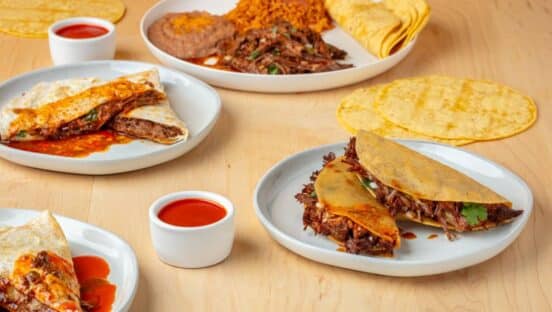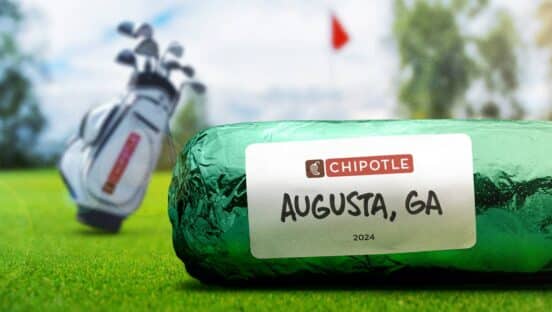The U.S. Food and Drug Administration’s Food Safety Modernization Act (FSMA) was signed into law by President Obama just more than a year ago, but companies that import foods from other countries still must work hard to ensure their supply systems are in top shape to stop contaminations from crossing U.S. borders.
Edible Arrangements is one such concept. It imports a large amount of its menu from outside the U.S.
The Connecticut-based fruit concept and boutique, which has grown to more than 1,000 units around the world, includes ingredients like oranges, strawberries, grapes, honeydew, cantaloupe, and pineapple, that are either grown in limited supply in the U.S. or not at all.
“We’re very concerned about food safety,” says Mindy Porter, director of the Fruit Reliability Excellence System for Edible Arrangements. “Without food safety, Edible Arrangements would cease to exist. So we take that very, very seriously. We want to make sure our customers don’t have to worry about their safety when they eat here.”
The safety of imported foods is rightfully a major concern for many in the foodservice arena. The FDA estimates that 10–15 percent of all food—including nearly two-thirds of fruit and vegetables and 80 percent of seafood—consumed in the U.S. is imported from other countries.
The dangers of selling tainted imported foods are all too real for some restaurant companies. In 2006, Taco Bell faced a potentially disastrous situation when dozens of customers fell ill after eating green onions from Mexico that were contaminated with E. coli. The company’s swift response to the outbreak, which included removing green onions from its stores and closing several locations, prevented further catastrophe.
Another Mexican restaurant chain wasn’t so lucky when it served tainted imports to customers. In 2003, some 600 people were sickened and four people died after contracting hepatitis A from a single Chi-Chi’s location in Pennsylvania. Officials believed the food at fault was also green onions from Mexico. The incident effectively drove a stake through the heart of the company, which had already filed for bankruptcy but closed its last U.S. location not long after.
While the amount of imported foods used at quick serves varies across the industry—multiple companies contacted for this story used little, if any—those that do bring in outside ingredients are working diligently to protect their safety.
“We want to know everything [international suppliers are] utilizing or not utilizing in their fields,” Porter says.
“We want to know the growing conditions. We look at the water supply. The new food safety act that the government passed last year is a big help to this, because all shipments have to go through a lot of checkpoints before they’re saying that [the foods are] safe enough to pass the test.”
FSMA updates the FDA’s food safety standards to increase the level of protection for both domestic and imported foods under the FDA’s watch. Those foods, which make up nearly 80 percent of the nation’s supply, include seafood, produce, and processed foods, among other things. The U.S. Department of Agriculture oversees meat, poultry, and egg imports, and its inspection standards under its Food Safety and Inspection Service are much more rigorous than the FDA’s.
Before FSMA, foreign food facilities were required under the Bioterrorism Act of 2002 to register with the FDA and give the FDA prior notice before sending foods to the U.S. The FDA could then inspect registered facilities and any foods that crossed into the U.S. With outbreaks like those at Taco Bell and Chi-Chi’s in the last decade, however, pressure has increased for the FDA to do more to ensure the safety of foods.
A number of new processes under FSMA improve the safety of imported foods. First, FSMA requires that the FDA establish offices in foreign nations that will periodically inspect food facilities. The Act also establishes a Foreign Supplier Verification Program that requires importers to make sure their food meets U.S. safety standards; creates an accreditation process for third-party auditors; gives the FDA power to require that certain foods be certified by a government representative or auditor in the country of origin; and creates a Voluntary Qualified Importer Program that offers to expedite the review of an importer’s shipment if they meet certain criteria.
Sebastian Cianci, spokesman for the FDA, says the new standards under FSMA take a prevention-based approach to food safety.
“To achieve food safety, you can’t just do it at the end step,” Cianci says. “It really starts from the farm, whether that’s a land farm where you’re harvesting produce, or whether it’s an aquaculture farm with seafood. You have to maintain the appropriate prevention controls throughout the growing and harvesting and processing and handling of the food as it goes from farm to table.”
Still, the FDA’s system isn’t foolproof. For starters, the FDA still only checks about 2 percent of all foods that come across U.S. borders. The organization relies on a Web-based system called PREDICT to monitor foods. The system electronically scans codes that have been attached by the importer, codes that upload product information, threat potential, and historical patterns into the system. Red-flagged products are then tested further.
[pagebreak]
“Based on the sheer volume, you can’t go in and physically look at everything,” Cianci says. “But 100 percent of the product that comes into the country is screened electronically, so we know what’s coming in. Of course, there is a finite amount of resources, there always is. And there is a lot of product.”
Many of the programs in FSMA also haven’t been implemented yet, and there may be funding issues to boot, says Sandra Eskin, director of the Food Safety Campaign for the Pew Health Group.
“We’re talking about at least three to five years until we see how this system works,” Eskin says. “We really need to see, No. 1, how the FDA implements it, and as importantly, No. 2, whether or not the agency gets enough funding to do the job it needs to do to enforce it.”
With holes remaining in the inspection process, and with the potential of situations like Taco Bell’s looming over quick serves, experts say restaurants should go an extra mile in ensuring the safety of their imports.
“If you’re in the restaurant industry and you are using an imported food product, I think you have so much at stake that [you] are doing a lot of what the government should be doing or could be doing,” says Melanie Grand, an assistant professor at Missouri State University who specializes in food safety.
“Unless the government wants to pay more, then unfortunately [the responsibility] is going to be placed on those restaurants. It is their reputation on the line.”
For several quick-serve companies, abandoning imported ingredients altogether is not a viable alternative. Take, for example, Russo’s New York Pizzeria and Russo’s Coal-Fired Italian Kitchen. The concepts were developed by Anthony Russo, a native Italian who says he sources several ingredients from his home country to make his concept more authentic.
“A lot of distributors don’t carry what I’m looking for,” Russo says. “They don’t have the good stuff I grew up with. So every time I go back to Italy, I visit dairy farms, I visit meat markets. We get a lot of good stuff from there.”
Russo says he builds relationships with his foreign suppliers and makes sure all of the labeling on his imports is accurate. He then works with a distributor to bring the food back to the U.S., a process that he says takes about 45 days.
Like Russo, Edible Arrangements’ Porter visits foreign suppliers personally to ensure the quality and safety of the company’s ingredients. She says Edible Arrangements then watches over the safety of the foods from the time it’s picked to the time it arrives in the stores.
“This just goes to help support what we’re doing in ensuring food safety,” Porter says. “We require testing of the product in the fields, at packaging time, at shipment time, and when it arrives back in the states if in fact it’s an import.”
Distributors make good partners for operators in the food safety process, says Maryanne Rose. Rose is president and CEO of SpenDifference, a supply chain management firm for mid-sized companies including Smashburger, Pizza Ranch, and Taco John’s. She says her company works with foreign manufacturers on behalf of her clients to import foods, which range from oils to proteins.
“The government is not going to come back in and protect your brand if there’s a problem,” she says. “Ultimately … whether I work directly for my [quick-serve] client or in a contract we have with them, our job is to elevate and protect their brand from a supply chain perspective. So you have to do your own homework.”
Rose says whether a restaurant is working through a distributor to import foods or not, representatives should still personally visit their foreign suppliers to know where their food is coming from.
“You have to get on a plane, you have to go down there, and you have to really see it,” she says. “If you’re going to be [importing] directly, you better validate and verify everything [suppliers] say they’re doing. Typically what you would do is you would go in to see where their raw materials are coming from, see how they’re controlling the safety of those raw materials. Don’t just look at paperwork, but have them show you, and check and validate and verify every step of the way.”
Grand says the food safety system for imported foods in the U.S. is far from where it needs to be, explaining that government programs don’t go far enough to protect foods and that the agencies are too underfunded to roll out better programs. At the heart of the issue is that most consumers want more safety precautions for their food but are unwilling to pay extra for it.
But restaurateurs must be prepared to take responsibility for their food until a better system presents itself, she says.
“It’s going to take a serious outbreak [to change the system again] or it’s going to take something where the food that comes in causes a lot of people to get sick,” she says. “I think we’re very much a reactive group.”









